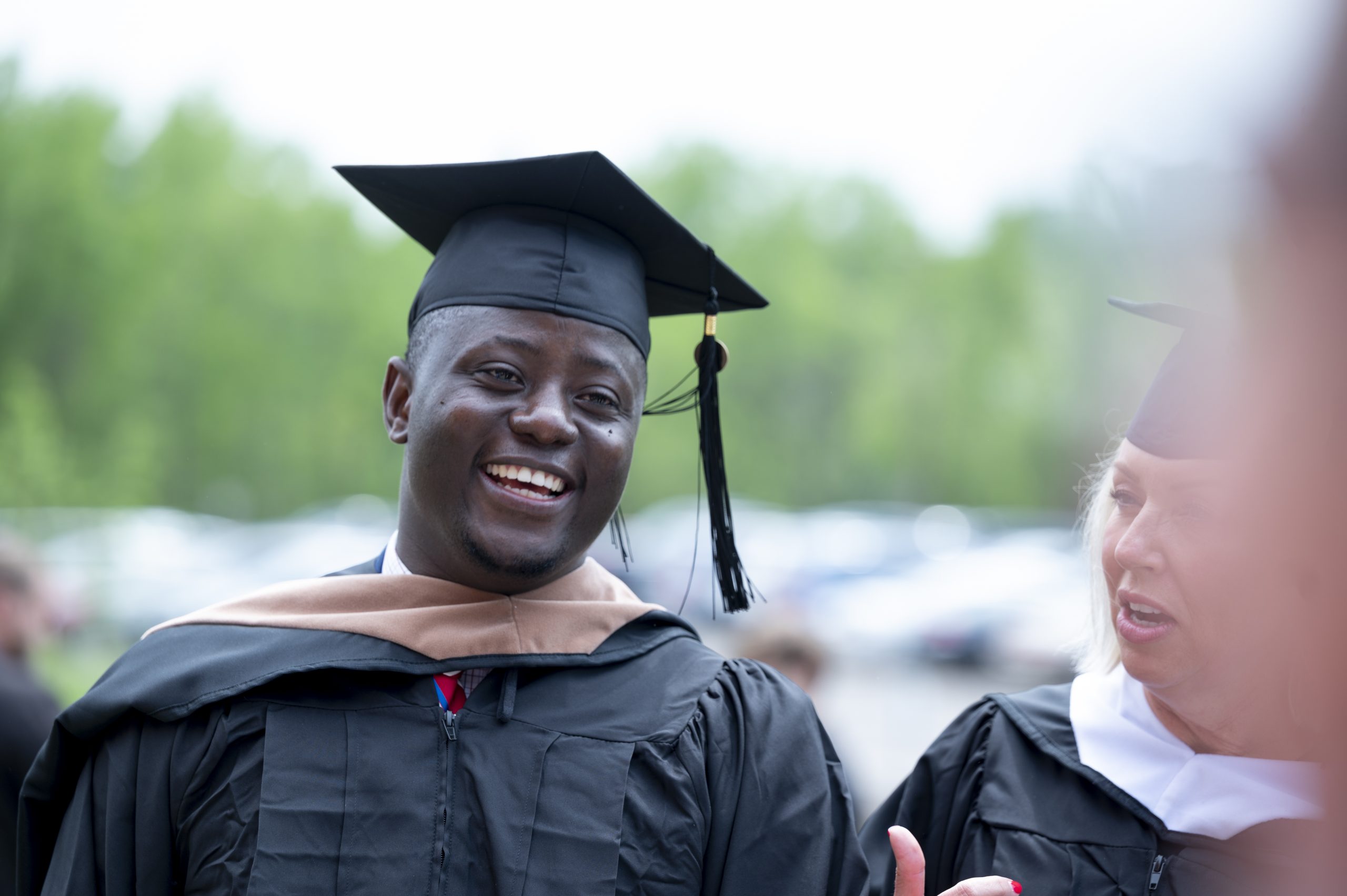Figuring out what we’re meant to do with the time we’ve been given is no small or easy feat. When we acknowledge that God has created everything with intention and purpose, it can feel like we might be missing something as we search for major signposts pointing us in the right direction.
To support those wrestling with these cosmic questions, we sat down with Bethel’s Associate Dean of Discipleship Ministries Dale Durie, who teaches the undergraduate course Vocation and Calling. Here’s some advice he offered about exploring your calling from a Christian perspective.
Maybe it’s not all about what we’re meant to do.
“When I teach a course on vocation and calling, I draw from Genesis 1 and 2—the story before the fall and the relationship between God and people. In Genesis 5, God created people in God’s image and then God called them or named them human beings. I like to joke that we were created and named human beings, not human doings. Our true self and our calling should flow out of our being with God.
“If there’s no being behind our doing, it becomes incredibly shallow. And it loses the impact that God desires for us to have in the world. It’s helpful to remind ourselves of our worth and significance in being image-bearers and ask ourselves what our relationship with God is like.”
God is inviting you to add to the beauty of creation.
“In the beginning, Adam and Eve were collaborating with God in the garden and drawing out all the hidden potential that God has established in creation. Some aspects of our calling should always include this way in which we’re adding to the beauty, adding to the goodness that God created the world to be.
“Even without the fall, I assume that the garden would have been cultivated and grown and developed. Families would have been formed and then eventually towns—spreading out all of this goodness across the Earth. That’s a positive way in which we can think about vocation and calling and how has God inviting us to add to the beauty of creation.”
God is calling you to bring beauty back to creation.
“Frederick Buechner says, ‘The place God calls you to is the place where your deep gladness and the world’s deep hunger meet.’ There’s a need in the world. And there are things that need to be fixed and challenged—something that needs to be reversed.
“With that concept, there’s then a negative way in which people can discern their passions. President Emeritus Jay Barnes used to love to ask the question: ‘What makes you most glad and what also makes you most mad?’ And I think those are really helpful questions because gladness is a key piece of noticing what enlivens you. What excites you? When do you feel like you’re sailing true north? You know you’re in the right direction and the sails are full of wind and you’re just moving in the right way.”
God specializes in creating calling and purpose out of chaos.
“Going back to Genesis 1, the Hebrew describes this picture of a dune that’s trackless and a wasteland. There’s no form. There’s no road. There’s no shape. There’s an absence of clear purpose and direction. God takes all these raw materials that have no purpose and no direction and starts to form it and shape it.
“At the beginning where the spirit of the Lord hovers over us, the imagery is almost of a mother hen covering an egg, waiting for it to hatch and for something to be drawn out from the trackless wasteland and the darkness and the watery picture of Genesis 1. I find encouragement to know that in chaos, God hovers and that God specializes in creating calling and purpose out of chaos. And there are things that are yet to be fully formed. This is something God did in the beginning and God can do over and over again in our lives.”
You are a masterpiece, just as you are.
“Being with God is about knowing ourselves more and more and being comfortable in our skin. We can trust ourselves being rather than striving to find our identity in something that we do. That sense of being is about becoming more comfortable in our skin and knowing who we are, which is where vocational assessment can be really helpful as we learn more about our strengths and our personalities.
“Identity is about that sense of being comfortable with ourselves and who we’ve been recreated to be in Christ Jesus. To use Paul’s language—we are a poem, a masterpiece, a work of art. Some works of art we just look at and receive because they’re not using or doing something. Our identity and our worth flow out of our being that kind of masterpiece as an image-bearer of God.”
Dale Durie is the associate dean of discipleship ministries in Bethel’s Office of Christian Formation and Church Relations. He graduated from Bethel with a biblical and theological studies degree and has gone on to earn Master of Divinity and Doctorate of Ministry degrees from other schools. He also teaches in Bethel’s College of Arts & Sciences and Bethel Seminary as an adjunct associate professor.

